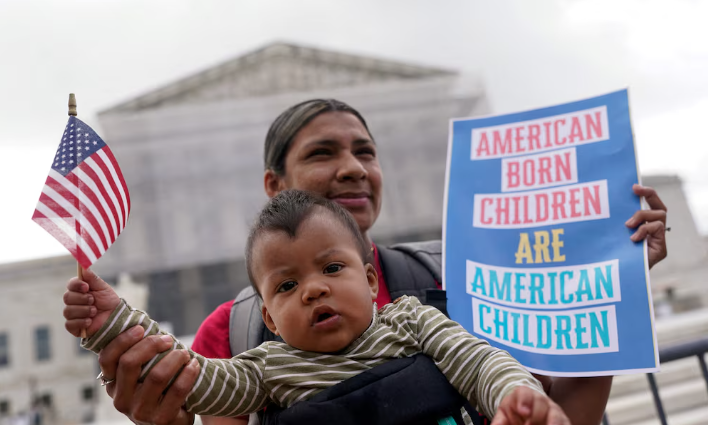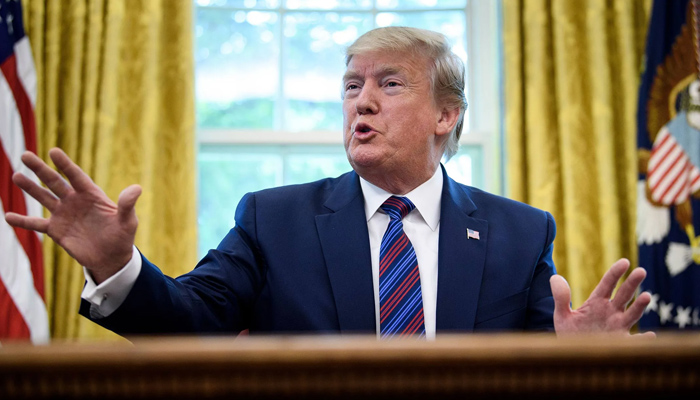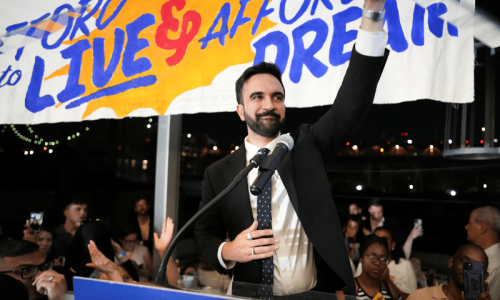WORLD NEWS

The U.S. Supreme Court may issue a landmark ruling today on former President Donald Trump’s sweeping executive order to end birthright citizenship for children born to non-citizen parents — a move that could reshape 150 years of constitutional interpretation under the 14th Amendment.
Trump, on his first day back in office in January, signed the controversial order instructing federal agencies not to recognize as U.S. citizens any child born on American soil to parents who are not U.S. citizens or green card holders.
⚖️ Constitutional Challenge
The order sparked legal battles across the country, with federal judges in Maryland, Massachusetts, and Washington issuing nationwide injunctions blocking its implementation. Those courts ruled the policy likely violates the 14th Amendment, ratified in 1868, which affirms that “all persons born or naturalized in the United States, and subject to the jurisdiction thereof, are citizens.”
The Trump administration is asking the conservative-majority court to lift those injunctions and reinstate the order without even weighing its constitutionality, framing the case as a challenge to so-called “universal injunctions” issued by lower courts.
👶 Impact: Over 150,000 Births a Year
According to immigration and civil rights advocates, the order would deny U.S. citizenship to more than 150,000 babies born annually, including the children of visa holders, students, and undocumented immigrants.
Plaintiffs include the attorneys general of 22 states and a coalition of immigrant rights organizations. They argue the policy is a direct attack on one of the nation’s most fundamental rights — citizenship by birth.
🧾 Historical Precedent: Wong Kim Ark
In defending the order, the Trump administration contends that the 1898 Supreme Court decision in United States v. Wong Kim Ark — which affirmed birthright citizenship — has been misinterpreted. It argues that the ruling applied only to children born to parents with “permanent domicile,” not those in the U.S. temporarily or unlawfully.
Critics, however, view the move as a broad assault on the principle of jus soli, or “right of the soil,” enshrined in American law for more than a century.
🔍 Public Opinion
A Reuters/Ipsos poll conducted June 11–12 found that only 24% of Americans support ending birthright citizenship, while 52% oppose it. Among Republicans, support was higher at 43%, compared to just 5% of Democrats.
🧩 Part of a Larger Immigration Push
The Supreme Court has already handed Trump significant wins this year:
· Resumed fast-track deportations to third countries.
· Ended Temporary Protected Status (TPS) for many migrants.
But it blocked deportations of Venezuelan migrants citing a lack of due process.
Trump’s strategy, backed by Solicitor General D. John Sauer, claims the 14th Amendment was intended to cover children of freed slaves, not the children of undocumented or temporary immigrants — a claim legal scholars reject as a misreading of history.
🚨 A Precedent-Setting Decision
A ruling in Trump’s favor could fundamentally reshape U.S. citizenship law and further strengthen the executive branch’s control over immigration. It could also redefine how the judiciary issues nationwide injunctions, curbing the ability of courts to block executive orders nationwide.
The decision is likely to be one of the most consequential rulings of the year and could reverberate far beyond immigration, touching constitutional law, civil rights, and the separation of powers.




